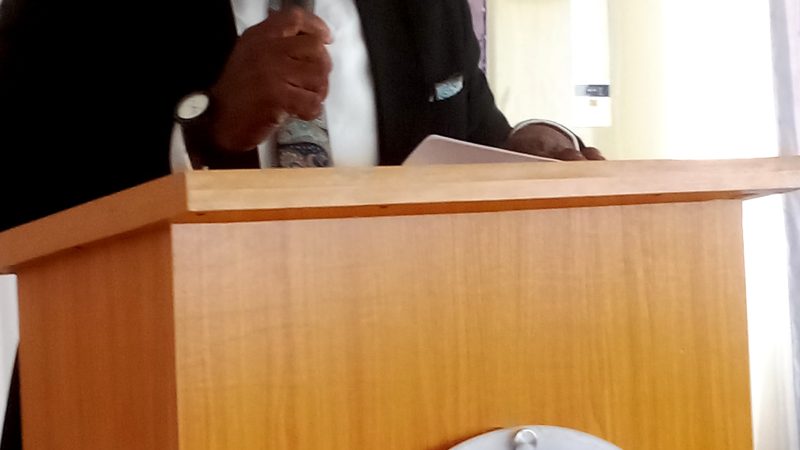Covid19 Has Increased Risk Of Money Laundering, Cybercrime, Says CBN

The Governor of Central Bank of Nigeria (CBN), Mr. Godwin I. Emefiele says the Covid19 pandemic has increased the risk of money laundering and cybercrime.
Emefiele who disclosed this in his keynote address delivered at the 31st Seminar for Finance Correspondents & Business Editors, held at Maxbe Continental Hotel, Enugu and organized by Finance Correspondents Association of Nigeria (FICAN), with the theme, Trends In Nigerian Payments System: Regulating The Fintech Digital Playing Field, said “the pandemic tested the operational resilience and business continuity strategies of our banks. Operational risk increased due to the increased reliance on technology and third-party service providers during the period. Also, the risk of money laundering and cybercrimes, have increased. There is also the elevated risk of unauthorized access to banks’ networks and data security breaches.”
He said “Covid-19 pandemic is one of the biggest crises that has faced mankind in recent history. As you know full well, the pandemic stretched health systems and impacted economies, with most jurisdictions going into recession. The crisis also disrupted social and business activities globally, affecting lives and livelihoods. Expectedly, Nigeria like most commodity-dependent countries was not spared the deleterious impact of the pandemic, given our dependence on crude oil export as a major source of revenue and foreign exchange.”
“It is noteworthy that the International Monetary Fund (IMF) estimated the global economic cost of the COVID-19 pandemic at $28 trillion in lost output. In a bid to address the fallouts of the pandemic, authorities all over the world have implemented extraordinary policy measures to ease financial stability risks and we were not an exception.
In response to the crisis, the CBN introduced and implemented a suite of measures aimed at reducing the risk to financial stability, boosting demand and economic growth, ameliorating the impact of the pandemic on some sectors and obligors, such as the Oil & Gas, Manufacturing, Agriculture, pharmaceutical and hospitality sectors.
Key among the measures taken were the approval of regulatory forbearance to banks to restructure their loans to severely affected sectors; provision of liquidity support to banks; provision of the COVID19 Targeted Credit Facilities (TCF) disbursed to individuals and households through the NIRSAL Microfinance Bank, several CBN intervention funds targeted at the real sector, and the mobilization of the private sector to contribute to the National response under the CACOVID Initiative. Other complementary measures included actions to enhance the resilience of the banking industry to the threat of cyber risk and deployment of an industry wide Cybersecurity Fusion Centre (C2FC) and Malware Information Sharing Platform (MISP) to address the growing cyber risk by providing a unified interface for cybersecurity intelligence sharing and enhanced incident response capabilities .
No doubt, these measures have yielded the desired outcomes, as we begin to see the initial outline of an encouraging recovery given the recent data released by the National Bureau of Statistics with GDP growth put at 5% for the second quarter of 2021.
Despite the headwinds associated with the pandemic, the banking industry has however, remained relatively resilient. This is attested to by our financial indicators with the industry Capital Adequacy Ratio (CAR) and Liquidity Ratio (LR) standing at 15.2% and 41.7%, respectively, at end-July 2021. These are above the prescribed prudential minimum. Also, the Non-Performing Loan Ratio, which was 5.4% as at the same period was above the regulatory maximum of 5% by only 40 bps. Notwithstanding these modest achievements, we cannot afford to rest on our oars as the work is far from over,” he explained.







